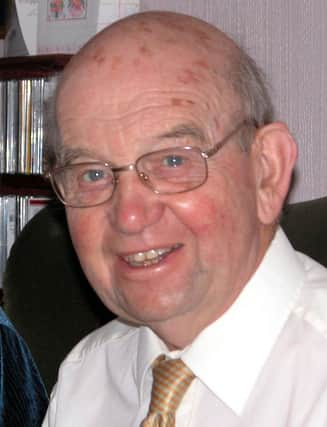Obituary: Dr Arthur Bethune


Arthur Bethune was born in Edinburgh and, thanks to a bursary gained at George Watson’s College, was able to study medicine at Edinburgh University, inspired by his older sister, who was working as a doctor in Peel Hospital near Galashiels.
As one of a group of students whose studies were accelerated due to the war, he graduated M.B.Ch.B. in 1945, aged 22.
Advertisement
Hide AdAdvertisement
Hide AdFor the next five years, he took on a variety of jobs: house physician in Edinburgh’s Western General where he encountered penicillin for the first time; assistant GP in Lockerbie; a formative spell in North Uist assisting the renowned Dr McLeod, visiting remote crofts by car, on foot, by boat or even on horseback; a year as house surgeon in Dumfries Royal Infirmary then in Cresswell Maternity Hospital; another short spell in general practice in Creetown, just when the NHS came into being; senior house officer at Edinburgh’s Astley Ainslie Hospital; then south of the border to work as a GP in rural Leicestershire.
This wide-ranging experience equipped him well for his 36 years of general practice (1949 -1985) in Newcastleton.
While working at Dumfries Infirmary he had met a nurse, Joyce White, and they married in 1951. They were both set to become medical missionaries in China, but his lifelong health problem (a disaccharide intolerance) prevented this.
Instead, he devoted his working life to serving the population of the Newcastleton area, visiting patients in their homes and farms, available when called for at any time of day or night, and gaining the respect of generations of the local people.
Advertisement
Hide AdAdvertisement
Hide AdHe worked with a number of assistants, then in partnership with Dr. Robert A. Marshall for many years. The practice covered a wide rural hinterland straddling the England-Scotland border, and involving four health authorities, which added a degree of administrative complication.
Due to the remoteness of the area, the work was varied and challenging, and involved dispensing, there being no local pharmacy.
A deeply religious man, with a strong evangelical faith, he became an elder of Newcastleton Congregational Church, and participated in lay preaching and interdenominational activities in the wider local area.
He was a scout leader, gaining the chief scout’s award. Hobbies included hillwalking, camping, railway modelling, philately, gardening (ideal at quiet times when “on call”), and photography.
Advertisement
Hide AdAdvertisement
Hide AdIn the 1960s he campaigned against closure of the Edinburgh-Hawick-Carlisle railway.
Retiring in 1985, aged 62, he remained in the village, and embarked on what proved to be a 36-year retirement. Sadly, after a few years, his wife developed Alzheimers, which necessarily curtailed their activity. He took on the role of her carer until her death in 2008, saying it was a privilege, not a burden.
In his 80s, he was asked to write a few articles about his early days in
medicine for the Copshaw Clatter, the village’s monthly newsletter. From his
Advertisement
Hide AdAdvertisement
Hide Addiaries and remarkable memory, he began to write and produced 33 monthly
articles under the title A Doctor Remembers. His family then published these
as a book, selling over a thousand copies to raise funds for the local First
Responders. A few copies are still available from
www.dbethune.com/publishing/.
After a life of providing care for others, he became the grateful recipient of
Advertisement
Hide AdAdvertisement
Hide Adcare from his family, the local medical staff (including his successor’s
successor) and the local team of carers. He was thrilled to see the daughter
of one of his carers graduate as a doctor a few months before his death.
He died peacefully at home aged 98 and is survived by his 4 children, 11
grandchildren and 15 great-grandchildren, of whom he was immensely proud.
Andrew Bethune and David Bethune